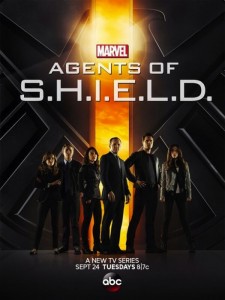 When I first saw the teaser trailer for Marvel’s Agents of S.H.I.E.L.D (which will from here on be referred to as SHIELD), I wasn’t impressed. While the internet was going crazy over it, I was sitting in my own little bubble of dislike, hoping what I saw as dreadful clunky dialogue wouldn’t be an indication of the entire script.
When I first saw the teaser trailer for Marvel’s Agents of S.H.I.E.L.D (which will from here on be referred to as SHIELD), I wasn’t impressed. While the internet was going crazy over it, I was sitting in my own little bubble of dislike, hoping what I saw as dreadful clunky dialogue wouldn’t be an indication of the entire script.
Despite my misgivings, I was excited for SHIELD. I was hopeful that the trailer was simply a ploy to get those who enjoy Joss Whedon’s trademark pop culture saturated dialogue, delivered by a mismatched team of Whedon box-tickers, to tune in. That in the actual pilot, the clichés would be kept to a minimum, and instead the show would be a taught, tense, action-drama.
Suffice to say, SHIELD lived up to the wrong expectations. Not only is the entire pilot an endless string of [supposedly clever] one-liners, barely managing to hold together the melodrama and paper thin plot, the acting is sub-par, and it doesn’t work as an introduction for those not already well versed on the Marvel Cinematic Universe – believe it or not, the entire world hasn’t seen every instalment of the cinematic behemoth. Viewing this show without favour is tough, but if you ignore the good faith of the MCU, and don’t let the Whedon fans sway your opinion, the writing is on the wall. SHIELD Isn’t great. I’m not even sure I can stretch to call it mediocre.
What I wanted from SHIELD was something like Burn Notice or Covert Affairs, with a bit of Breaking Bad grittiness, but this is network TV, so I would have been more than thrilled with an Alias vibe (the TV show, rather than the comic). What we got, was NCIS crossed with Eureka (thanks to @myleftkidney for this analogy). There was also an underlying sensation that this show could have been a failed nineties attempt to compete with Lois and Clark: The New Adventures of Superman.
SHIELD opens with narration, which is common for a pilot episode . The narration is also an indication of the quality of acting throughout. I’m not sure how to describe Skye’s (Chloe Bennet) opening monologue, other than dire. Not only is it badly written, it’s overacted, and doesn’t at all have the tone you would expect of underground journalism, which is what this is supposed to read as. It does however, inform us that SHIELD has been made. There are people who know about the organisation, even if they aren’t aware of their exact operating capacity, and that conspiracy theorists are keen to get their claws into any leads they can dig up.
We’re introduced to the pilot’s main plot point straight away, just like any other procedural. The plot point is Michael – a juiced up black dude who isn’t Luke Cage, played by J. August Richards.
No seriously, that’s all this guy is. A inner city black guy cliché with little to no personality other than he’s an angry factory worker single father, who got fired and is now enhanced by something called Project Centipede. He’s also the only character in the whole pilot that doesn’t look like they stepped straight out of a fashion catalogue – clothes, makeup and all. He’s basically the worst kind of vaguely racist black guy trope there is, and this continues right to the end of the episode.
Everyone else is impossibly pretty, and well put together. Even Skye who is supposed to be living out of a van, exposing the conspiracies of the world, has perfect hair, and even more perfectly pressed clothes. Agent Ward (Brett Dalton) has the personality of a brick, and the scientific team of Fitz and Simmons (Iain De Caestecker and Elizabeth Henstridge), are clearly a product of Whedon’s fandom awareness – a pre-loaded ship complete with it’s own portmanteau (FitzSimmons), and brain-twin style dialogue. The only shining light of the team is Ming-Na Wen as Melinda May, who doesn’t get nearly enough screen time, despite the large hints of an interesting, if cliché, back story.
 Considering Whedon’s championing of strong female characters, I find it surprising that he has apparently chosen Agent Ward as the secondary main character after Coulson (Clark Gregg), rather than Melinda May. I can’t help but feel they’re keeping things open for Cobie Smulders’ Maria Hill to come to the show full time once How I Met Your Mother has finished.
Considering Whedon’s championing of strong female characters, I find it surprising that he has apparently chosen Agent Ward as the secondary main character after Coulson (Clark Gregg), rather than Melinda May. I can’t help but feel they’re keeping things open for Cobie Smulders’ Maria Hill to come to the show full time once How I Met Your Mother has finished.
Joss has taken an idea right out of about fifty percent of MCU fanfic, and explained Phil Coulson’s survival (after he was callously stabbed in the chest by Loki) as a way to motivate the Avengers. Yawn. If I wanted that explanation I’d just head on over to AO3 and read any one of a few thousand stories with this same idea. They’d probably be better written and more interesting, too.
Continuing with Coulson, I couldn’t help but feel that he was out of character during the whole show. We know him as a man with a singular expression, occasionally making a wry observation, or coming out with a memorably clever quote. A man with a slightly sick sense of humour, that delivers his lines with a benign, bland, almost vacant look. In SHIELD, he cracks wise every second line, smiles often, gets a bit shouty, and talks down bad guys without a megaphone in hand. Overall, temporary death seems to have changed Phil into an entirely different person. Even if he is an LMD, it’s still a bit weird.
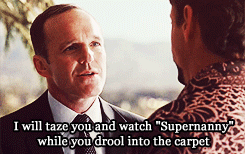 So character wise, it’s a misfire. I can only hope the actors grow more into their roles over coming episodes, but thus far, even their accents feel fake. It’s not all bad – there are some moments where Skye is genuinely charming and a bit goofy, and Fitz and Simmons are pretty funny with their cute brand of talking over each other humour, but the good moments are unfortunately outweighed by the not so great. Is it too much to ask to have one single character that gets through an episode without snark?
So character wise, it’s a misfire. I can only hope the actors grow more into their roles over coming episodes, but thus far, even their accents feel fake. It’s not all bad – there are some moments where Skye is genuinely charming and a bit goofy, and Fitz and Simmons are pretty funny with their cute brand of talking over each other humour, but the good moments are unfortunately outweighed by the not so great. Is it too much to ask to have one single character that gets through an episode without snark?
Most of what I’m presuming was a huge budget, has clearly been spent on Joss Whedon’s creative input, with what was left over used to create Lola and her groan inducing reveal at the end of the episode. The visual effects are on par with, or below what we were seeing in TV shows like 24, Alias, and Dark Angel, back in the early 2000s (shows that SHIELD should be looking to for more than just visual cues).
While I have issues with the acting and visual effects, my main gripe is the writing. Like most of Whedon’s shows, SHIELD is trying very hard to be self aware. So hard, that it manages to come full circle, and lose itself in what it’s trying to be. The episode felt like little more than a bunch of snarky dialogue and in-universe name drops, strung together with various instances of lampshade hanging to get through forty-three minutes, in the hopes of snagging viewers with references to various parts of the Marvel Multiverse. There is little here to grab the interest of someone completely new to both Marvel, and Joss Whedon’s style of storytelling. I feel like the team of Whedon/Whedon/Tancharoen have forgotten that a shows success isn’t just about generating approval from an existing fanbase. It’s about gaining new viewers, introducing them to this universe, and keeping everyone interested.
The one liners not only become tiresome, but some are downright offensive. One in particular, which I think may have been aimed at taking a dig at how we treat celebrity here in the real world, instead came across as derogatory towards female cosplayers, a problem that could have been easily rectified by having Skye call out Agent Ward’s attitude. Instead, she shrunk away and admitted in a small voice, that she was one of the fangirls he was referring to. Considering the prevalence of negativity towards women involved in geekdom, this is not at all a good message to send.
Over all, ABC has missed a golden opportunity to deliver a gritty, interesting spy drama, and has instead given us something that would have worked just as well as a cartoon. Part of the MCUs appeal, is the way it has managed to ground itself in the real world, instead of being a direct adaptation of the comics. Agents of S.H.I.E.L.D. feels like it has forgotten this in its very first episode, but it’s not until the final scene that the ability to suspend your disbelief goes from wavering to shattered.
Despite these misgivings, I am going to continue watching, if only to keep up with MCU continuity. I sincerely hope the show improves, and with the showrunning being handled by Whedon’s younger brother Jed, and his wife Maurissa Tancharoen, there may be scope for something new and compelling to come from a pilot that had more failures than successes.
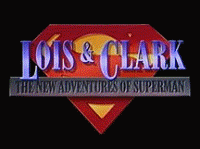
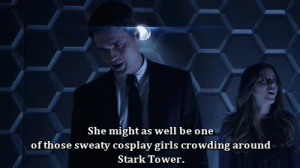
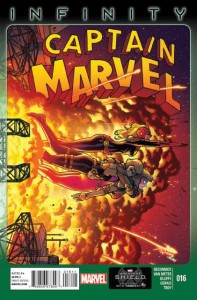


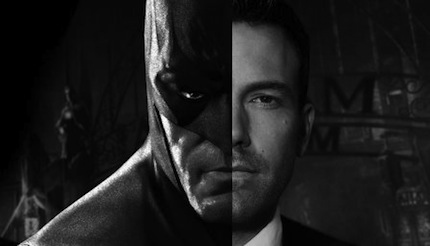
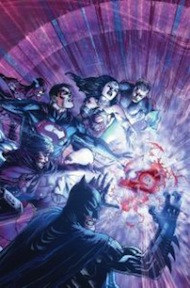
 RSS - Posts
RSS - Posts
Recent Comments